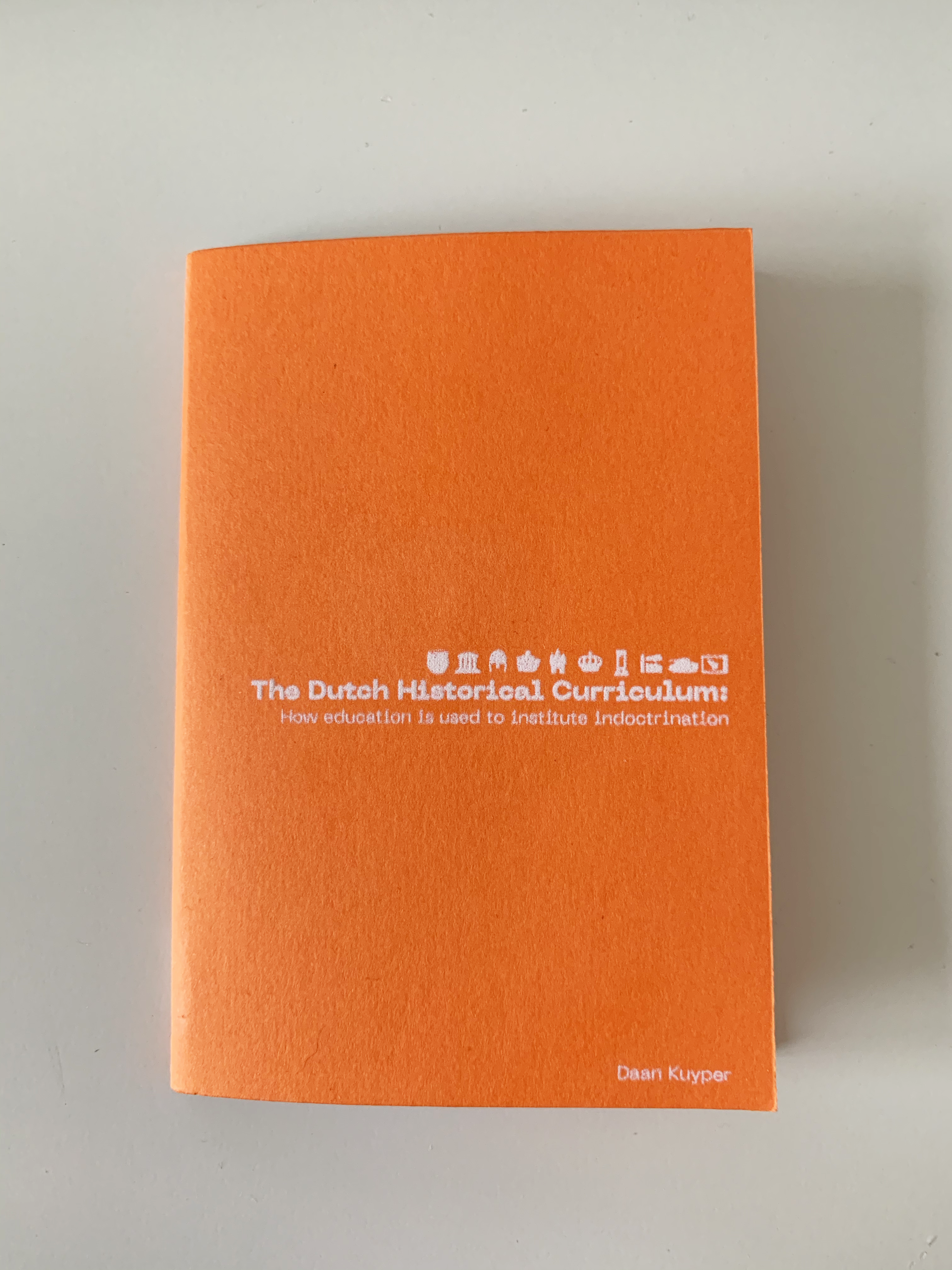The Dutch Historical Curriculum
Contents
The wikipage input value is empty (e.g. SomeProperty::, [[]]) and therefore it cannot be used as a name or as part of a query condition.
catholic community with a mother, father and a younger brother where I was always let to believe that this was the normative idea of what life looks like - want to analyze the Dutch curriculum and uncover the way the content of this curriculum is being used as a vehicle to form the national identity and it is cultural archive (I will later talk more about the cultural archive).1 When I was young I have always been in a very centralized position. This was something I did not consciously live with. When I was 10-11 I remember at the beginning of my school year we had a new student that was coming into our class. He was a Afghan refugee who had fled to the Netherlands with his parents, little sister and little brother. Very quickly we became friends. We were played during recess in school and met up after school at either his house or my house. Back then I had never learned anything about Afghan culture apart from the things I had heard on the news about the war. I remember going to his house and meeting his parents who did not speak Dutch as well as their son spoke it. They where so warm and inviting and I was invited to join them for dinner and ate things I never ate before. The most important thing that always stuck with me was how other classmates would behave towards him and would bully him for being different. I never understood why they did this up to a certain level. This awkwardness and struggle in interacting with other cultures is for me something that derives from the lack of information and different viewpoints. Something that shows Dutch people are being taught a very mono ethnic or mono cultural idea of the Netherlands. I recognized this in my classmates acting towards my Afghan friend. Because the Dutch historical curriculum would not tell anything about Afghanistan, for my classmates it was not part of Dutch history and therefore “not-Dutch”. This ties into my research question where I ask how can a change
of the Dutch historical curriculum change the Dutch mono-culture.Links
CONTRIBUTE
Feel free to contribute to Beyond Social.









